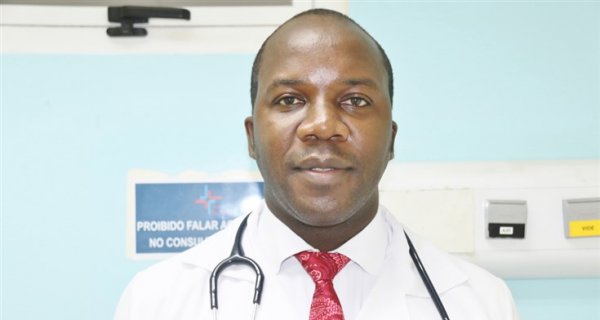The public health specialist was speaking at the II National Conference "Thinking Angola" on "Challenges and Opportunities for the Angolan Health System".
According to Jeremias Agostinho, the first challenge to be overcome is the reversal of the budget allocation for the health sector, despite the fact that, in the last four years, the trend has been changing.
"From 2017 to 2022, the budget that is made available to the health sector grows every year. Unfortunately, and this is a challenge and the first one that has to be tackled, has to do with the execution of the budget that is made available to the health sector", said the doctor.
The health professional added that 100 percent of the plan for the sector is almost never achieved, varying between 60 and 70 percent.
"It is necessary to change that, because our country has signed very important commitments, such as the Dakar target, in Abuja, in which it would make about 15 percent of the General State Budget (OGE) available for the health sector. maximum of 6.1 percent, that is, we still need 8.5 percent to reach that goal", he pointed out.
Jeremias Agostinho considered it important that the situation change, taking into account the high mortality rates that the country still has, whose main cause is malaria.
"In 2013, our country diagnosed more than three million cases of malaria and that number rose, in 2019, to about seven million cases. In the years 2020 and 2021, this number increased again by around 50 percent, that is, never have so many cases of malaria been identified as in these years", he advanced.
With regard to the main causes of mortality, Jeremias Agostinho pointed to malaria, followed by tuberculosis and road accidents.
"In 2013 alone, with regard to malaria, 7300 people lost their lives, in 2019 this number drops significantly, we have been getting good results in relation to malaria since the crisis we had in 2016. In 2016, it was, in a single year, more than 16,000 people lost their lives to malaria and in 2019 this number dropped to around eight thousand", he stressed.
The doctor regretted that with the covid-19 pandemic, most of the support was directed to this disease, with the main diseases "going to the background", causing 11,000 deaths from malaria to be recorded in 2020, rising in 2021 to around 13 thousand.
"These are clearly worrying numbers and all work must be done to bring this number down," he said.
Between 2018 and 2019, about 25 million citizens sought health services, said Jeremias Agostinho, expressing that "unfortunately, people still get sick a lot" in Angola.
Of the approximately 25 million citizens who sought health services, 15 million sought hospitals "because they had a disease linked to basic sanitation".
"In other words, the accumulation of garbage that we have in many provinces and the lack of access to drinking water, the deficit in the drainage system, whether from rainwater or domestic water were the reason that made 80% of people have diseases and go to a health unit", he said.
"Unfortunately, of these 15 million patients, about 25,000 died (...), of which 19,737 individuals lost their lives in two years because of malaria, that is, malaria is a huge burden for our health system. ", he said.
Regarding human resources, Jeremias Agostinho said that the number of professionals is still small - around two doctors for every 10,000 inhabitants.
"These professionals, unfortunately, do not have the appreciation and support they need, and it is this aspect that has contributed to the flight of many staff abroad", said the health professional.
The doctor also criticized the policy of prioritizing investments for the tertiary system instead of the primary, with 70 and 30 percent of the budget for the health sector, respectively.







